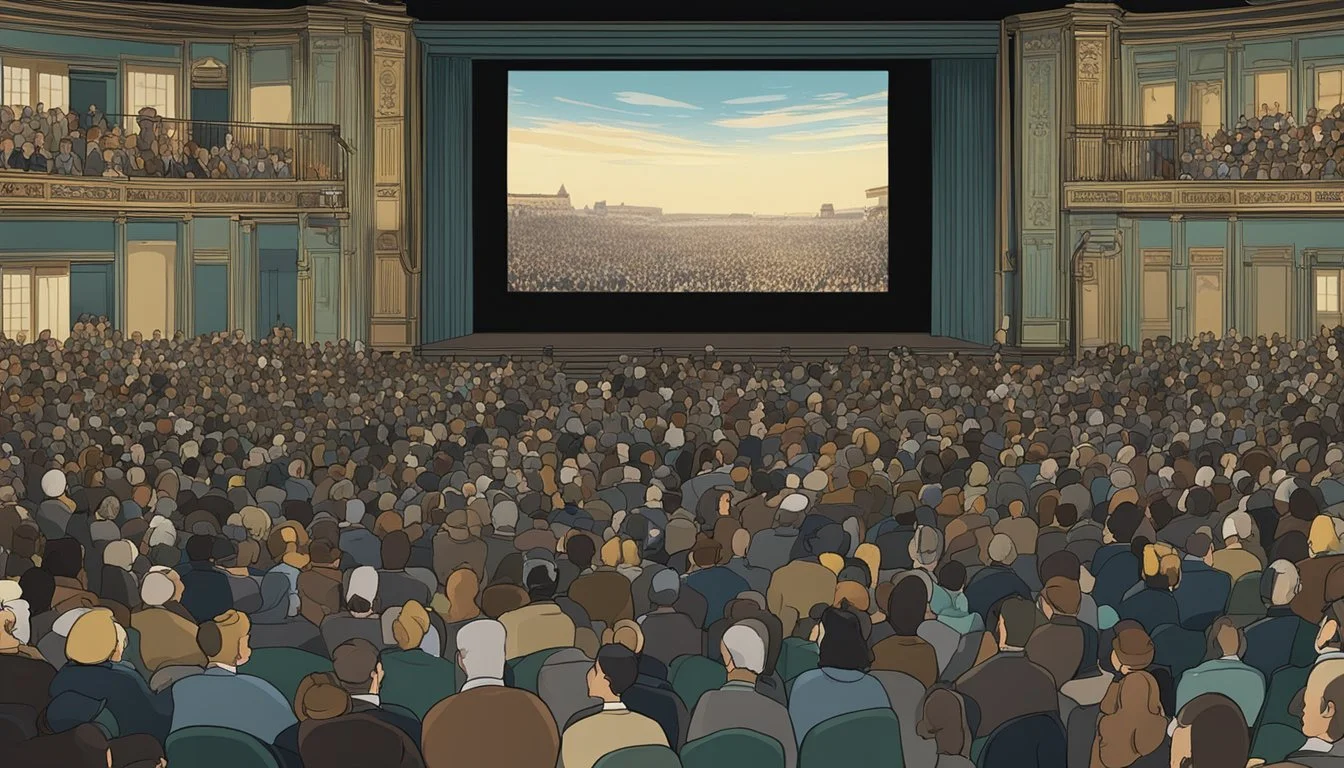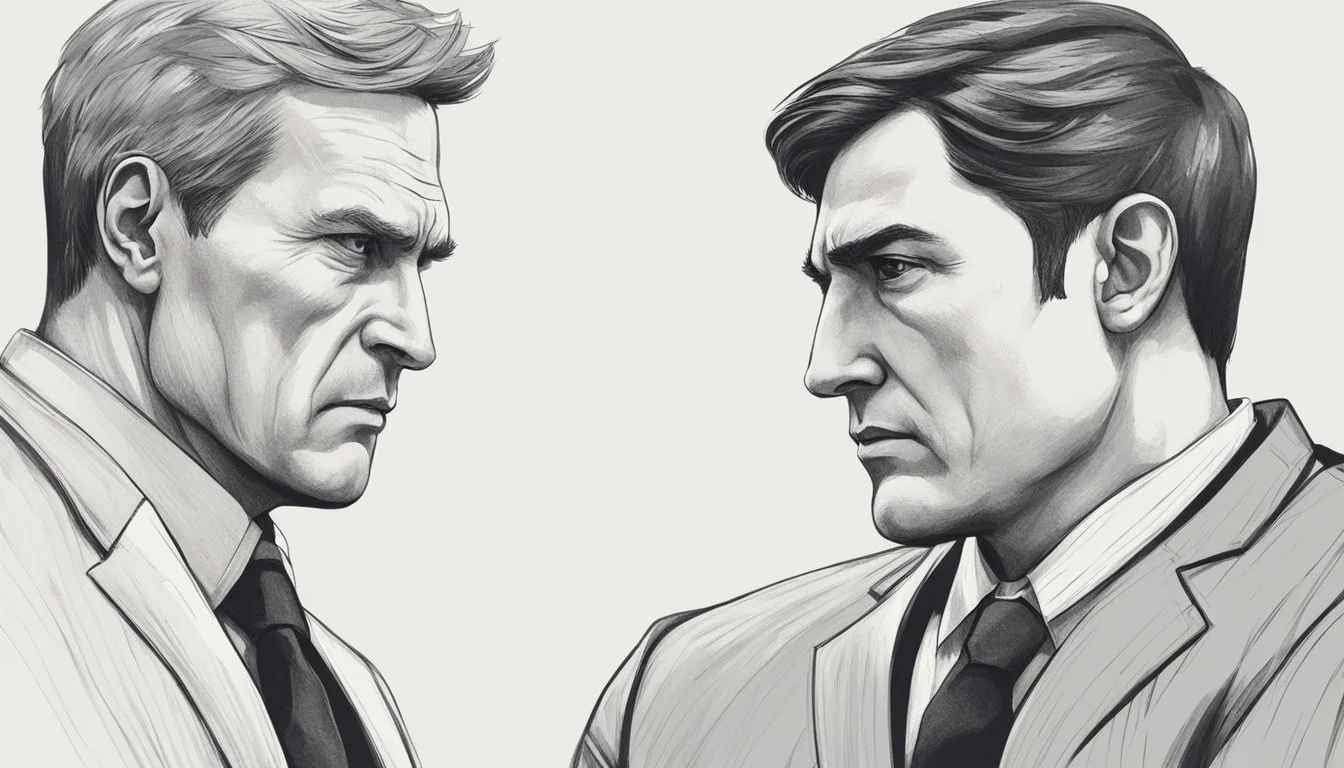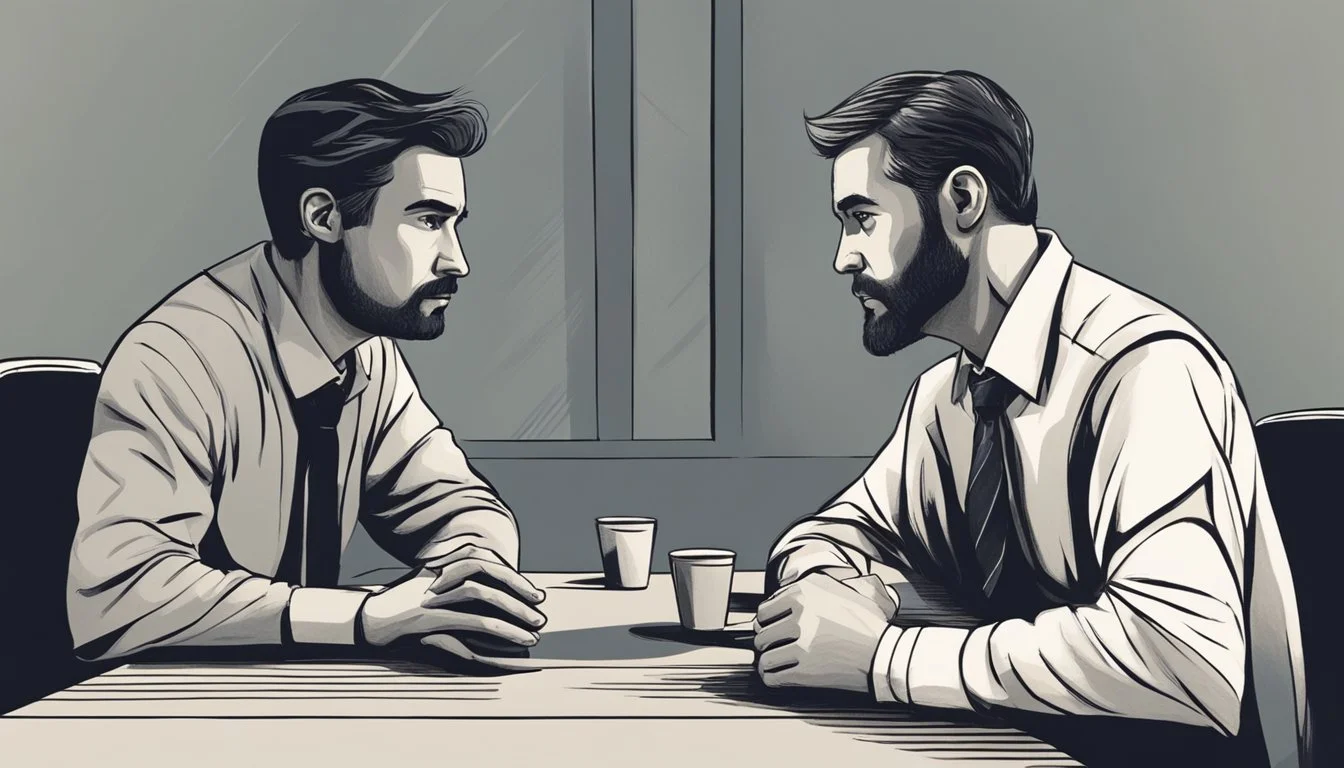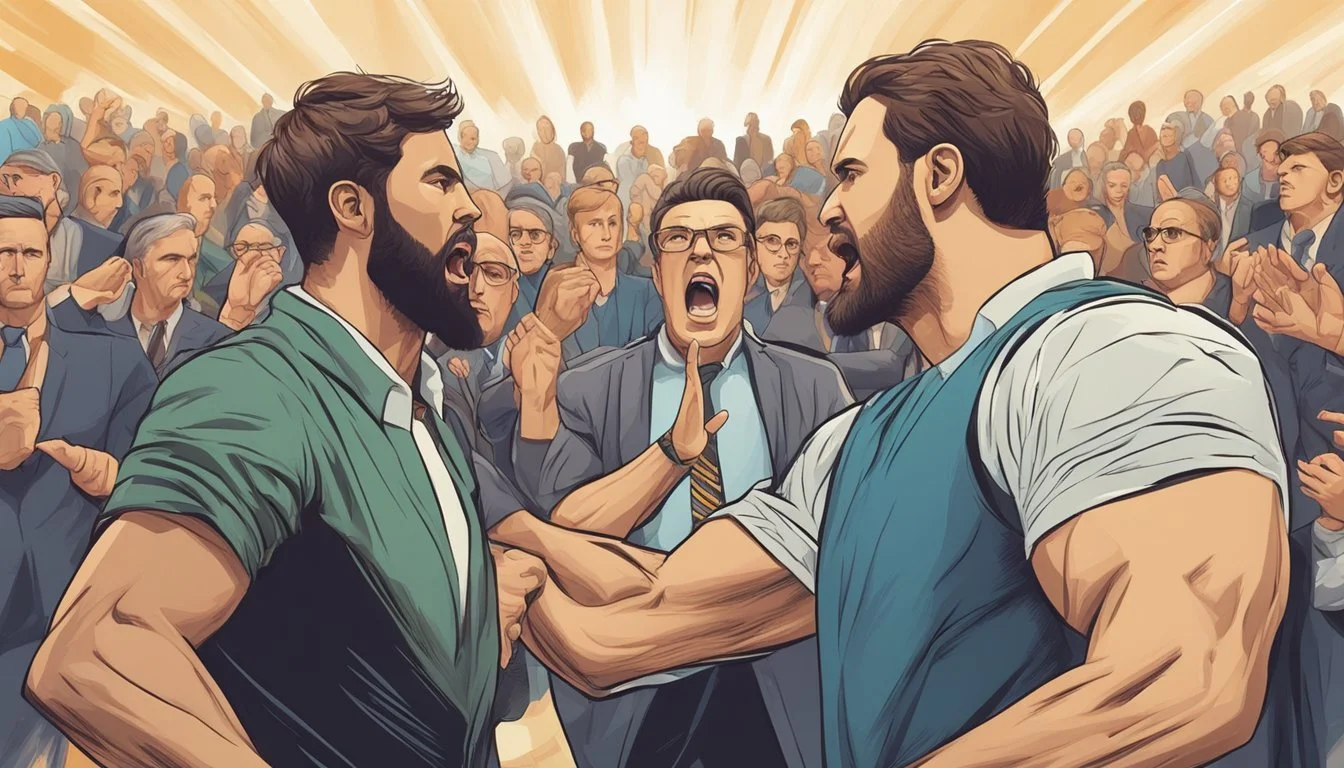Clash of Titans: The TV Duel That Sparked America's Political Fire
"Best of Enemies" captures a pivotal moment in American political discourse. This 2015 documentary explores the heated televised debates between Gore Vidal and William F. Buckley during the 1968 U.S. presidential election. The film showcases how these intellectual titans shaped modern media debates and public discourse.
The documentary delves into the contrasting personalities and ideologies of Vidal and Buckley. These two figures represented opposing ends of the political spectrum - Vidal the liberal intellectual and Buckley the conservative commentator. Their verbal sparring during the Republican and Democratic conventions captivated audiences and boosted ABC's ratings.
Directed by Robert Gordon and Morgan Neville, "Best of Enemies" uses archival footage and interviews to paint a vivid picture of this cultural watershed. The film examines how these debates set the stage for today's polarized political landscape and the intersection of media and politics.
Historical Context
The 1968 U.S. presidential election unfolded against a backdrop of social upheaval and political polarization. Televised debates emerged as a powerful platform for shaping public opinion during this tumultuous period.
The 1968 Political Climate
The Vietnam War dominated the national discourse, sparking widespread protests and dividing the country. Anti-war sentiment grew as casualties mounted and the conflict's purpose became increasingly questioned.
The assassinations of Martin Luther King Jr. and Robert F. Kennedy further intensified the atmosphere of unrest and uncertainty. Civil rights issues and racial tensions remained at the forefront of public consciousness.
President Lyndon B. Johnson's decision not to seek re-election opened the field for new candidates. The Democratic Party faced internal conflicts, while Republicans sought to capitalize on the tumultuous climate.
Rise of Televised Debates
Television's growing influence on American politics reached new heights in 1968. The medium provided an unprecedented platform for candidates to reach voters directly in their homes.
Televised debates became a crucial element of the campaign strategy. They offered viewers a chance to compare candidates side-by-side, assessing their knowledge, charisma, and ability to think on their feet.
The Republican and Democratic National Conventions received extensive TV coverage, bringing the political process into living rooms across the nation. This exposure highlighted the ideological divide between conservatives and liberals.
Intellectual figures like William F. Buckley Jr. and Gore Vidal used TV appearances to articulate and defend their respective conservative and liberal viewpoints, shaping public discourse beyond traditional political circles.
Key Figures
Gore Vidal and William F. Buckley Jr. were prominent public intellectuals who shaped American political discourse in the mid-20th century. Their contrasting ideologies and sharp wit made them formidable opponents in televised debates.
Biography of Gore Vidal
Gore Vidal was born in 1925 to a politically connected family. He emerged as a prolific writer and left-wing commentator. Vidal's novels, essays, and plays often challenged societal norms and political conventions.
He ran for political office twice, unsuccessfully seeking seats in Congress. Vidal's sharp tongue and provocative statements made him a controversial figure in American letters and politics.
His debates with Buckley showcased his quick wit and intellectual prowess. Vidal's critiques of American imperialism and conservatism were central to his public persona.
Biography of William F. Buckley Jr.
William F. Buckley Jr., born in 1925, was a leading conservative intellectual. He founded the influential magazine National Review in 1955, which became a cornerstone of modern American conservatism.
Buckley's eloquent speaking style and vocabulary made him a formidable debater. He hosted the long-running television show "Firing Line," where he engaged with various political figures and thinkers.
His debates with Vidal highlighted the ideological divide in American politics. Buckley's conservative principles, including free-market economics and anti-communism, shaped Republican Party policies for decades.
The Documentary
"Best of Enemies" chronicles the explosive 1968 debates between Gore Vidal and William F. Buckley Jr. The film captures a pivotal moment in American media and political discourse.
Filmmaking and Production
Directors Morgan Neville and Robert Gordon crafted the documentary using archival footage and interviews. They skillfully wove together clips from the original debates with commentary from media experts and cultural historians.
The filmmakers spent years researching and gathering materials. They obtained rare footage from ABC's archives and conducted over 30 interviews with key figures.
Neville and Gordon employed a creative storytelling approach. They used split-screen techniques and animated graphics to enhance the viewing experience.
Critical Reception
"Best of Enemies" received widespread acclaim from critics. The film holds a 94% approval rating on Rotten Tomatoes, based on 108 reviews.
Critics praised the documentary's engaging presentation of historical events. Many noted its relevance to contemporary political discourse.
The film premiered at the 2015 Sundance Film Festival to positive reviews. It was nominated for several awards, including Best Documentary Feature at the Critics' Choice Awards.
Cultural Impact
"Best of Enemies" sparked discussions about the evolution of political debates on television. It highlighted the shift towards combative, personality-driven exchanges in media.
The documentary renewed interest in Vidal and Buckley's intellectual contributions. It introduced their rivalry to a new generation of viewers.
Media scholars have used the film to examine the roots of today's polarized political landscape. It serves as a valuable resource for understanding the intersection of politics and entertainment.
Themes and Analysis
The Best of Enemies documentary explores the clash of ideologies and the power of media in shaping public discourse. It examines how opposing viewpoints collide and evolve through debate and exposure.
Ideological Opposites and Debate
The film centers on the nationally televised debates between William F. Buckley Jr. and Gore Vidal during the 1968 presidential conventions. These two figures represent stark ideological contrasts in American politics and culture.
Buckley, a conservative intellectual, championed traditional values and limited government. Vidal, a liberal author and commentator, advocated for progressive social change and criticized established power structures.
Their debates highlight the deep divisions in American society during a turbulent era. The documentary showcases how their verbal sparring brought complex political ideas to a mass audience.
Media Evolution and Influence
Television emerged as a powerful force in shaping public opinion during this period. The Buckley-Vidal debates marked a shift in how political discourse was presented to the American people.
These televised encounters blended entertainment and intellectual discussion. They set a precedent for future political coverage and commentary on TV.
The documentary examines how media framing and editing influenced public perception of the debates. It shows the lasting impact of these televised clashes on political communication and public discourse.
The film raises questions about the role of media in democracy and its ability to inform or inflame political divisions.
Legacy and Relevance
The "Best of Enemies" documentary sparked renewed interest in the pivotal 1968 debates between Gore Vidal and William F. Buckley. It highlighted how their intellectual sparring shaped modern political discourse.
Influence on Political Commentary
The Vidal-Buckley debates set a new standard for televised political commentary. Their erudite yet combative exchanges paved the way for today's pundit-driven news formats.
The film showcases how their clashes brought complex political ideologies to mainstream audiences. It demonstrates the power of articulate, passionate advocates to sway public opinion.
Their debates touched on key issues like religion, sexuality, and the role of government. These topics remain central to American political divisions today.
Relevance to Contemporary Politics
The documentary draws parallels between the political climate of 1968 and current partisan divides. It illustrates how the roots of today's culture wars can be traced to this earlier era.
Vidal's liberal views and Buckley's conservative stance represent enduring ideological poles in American politics. Their arguments on topics like social welfare and foreign policy still resonate in contemporary debates.
The film highlights how personal attacks and emotional appeals can overshadow substantive policy discussions. This mirrors concerns about the quality of modern political discourse.
By examining this historical clash, the documentary prompts viewers to reflect on the evolution of political communication and media influence in shaping public opinion.
Viewing Options
"The Best of Enemies" documentary is available through multiple streaming platforms and rental services. Viewers can easily access the film from the comfort of their homes.
Streaming and Rental Services
"The Best of Enemies" can be streamed on Amazon Prime Video, with options for both ad-supported and ad-free viewing. The Roku Channel, Tubi TV, and Pluto TV offer free streaming with advertisements.
For those preferring to rent, VUDU provides a rental option. The film is not currently available on major networks like ABC or CBS.
Streaming services offer the convenience of instant access, while rentals typically provide a 48-hour viewing window once started.
Prime Video subscribers can watch at no additional cost. Non-subscribers can rent the film for a fee.
Tubi, a free streaming platform, includes "The Best of Enemies" in its library. This option is ideal for viewers looking to watch without a subscription or rental fee.
Conclusion
"Best of Enemies" offers a compelling look at a pivotal moment in American political discourse. The documentary captures the intensity of the 1968 debates between Gore Vidal and William F. Buckley Jr.
These televised clashes showcased the sharp divide in ideologies that existed then and continues today. The film highlights how public discourse has evolved over time, particularly in the realm of political commentary.
Vidal and Buckley's exchanges provide valuable historical context for understanding modern political debates. Their intellectual sparring matches demonstrate the power of words and ideas in shaping public opinion.
The documentary serves as a biographical snapshot of two influential figures in American culture and politics. It reveals their personalities, motivations, and the societal pressures they faced.
While not directly related to Martin Luther King Jr., the film touches on the broader civil rights issues of the era. It illustrates how these debates reflected and influenced the changing social landscape of 1960s America.
"Best of Enemies" reminds viewers of the importance of respectful dialogue, even in the face of stark disagreement. It challenges audiences to consider the role of media in shaping political discourse and public understanding.





